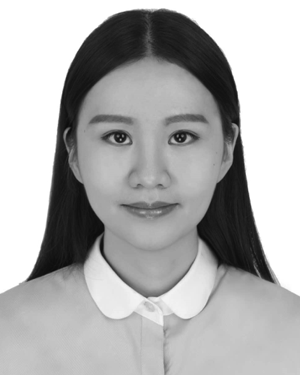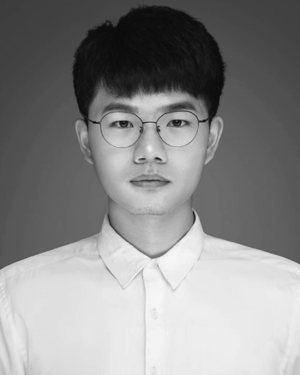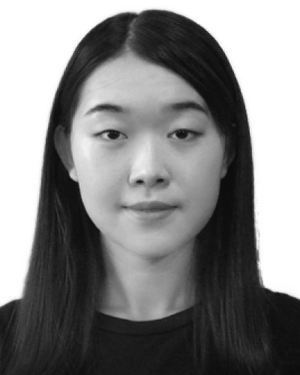Abstract:
This paper focuses on the mask utilization of video object segmentation (VOS). The mask here mains the reference masks in the memory bank, i.e., several chosen high-quali...Show MoreMetadata
Abstract:
This paper focuses on the mask utilization of video object segmentation (VOS). The mask here mains the reference masks in the memory bank, i.e., several chosen high-quality predicted masks, which are usually used with the reference frames together. The reference masks depict the edge and contour features of the target object and indicate the boundary of the target against the background, while the reference frames contain the raw RGB information of the whole image. It is obvious that the reference masks could play a significant role in the VOS, but this is not well explored yet. To tackle this, we propose to investigate the mask advantages of both the encoder and the matcher. For the encoder, we provide a unified codebase to integrate and compare eight different mask-fused encoders. Half of them are inherited or summarized from existing methods, and the other half are devised by ourselves. We find the best configuration from our design and give valuable observations from the comparison. Then, we propose a new mask-enhanced matcher to reduce the background distraction and enhance the locality of the matching process. Combining the mask-fused encoder, mask-enhanced matcher and a standard decoder, we formulate a new architecture named MaskVOS, which sufficiently exploits the mask benefits for VOS. Qualitative and quantitative results demonstrate the effectiveness of our method. We hope our exploration could raise the attention of mask utilization in VOS.
Published in: IEEE Transactions on Image Processing ( Volume: 31)
Funding Agency:

Institute of Cyber-Systems and Control, Zhejiang University, Hangzhou, China
Mengmeng Wang received the B.S. and M.S. degrees in control science and engineering from Zhejiang University, Zhejiang, China, in 2015 and 2018, respectively, where she is currently pursuing the Ph.D. degree with the Laboratory of Advanced Perception on Robotics and Intelligent Learning, College of Control Science and Engineering. Her research interests include visual tracking, action recognition, computer vision, and dee...Show More
Mengmeng Wang received the B.S. and M.S. degrees in control science and engineering from Zhejiang University, Zhejiang, China, in 2015 and 2018, respectively, where she is currently pursuing the Ph.D. degree with the Laboratory of Advanced Perception on Robotics and Intelligent Learning, College of Control Science and Engineering. Her research interests include visual tracking, action recognition, computer vision, and dee...View more

Institute of Cyber-Systems and Control, Zhejiang University, Hangzhou, China
Jianbiao Mei received the B.S. degree in control science and engineering from Zhejiang University, Zhejiang, China, in 2021, where he is currently pursuing the M.S. degree with the Laboratory of Advanced Perception on Robotics and Intelligent Learning, College of Control Science and Engineering. His research interests include video object segmentation, computer vision, and deep learning.
Jianbiao Mei received the B.S. degree in control science and engineering from Zhejiang University, Zhejiang, China, in 2021, where he is currently pursuing the M.S. degree with the Laboratory of Advanced Perception on Robotics and Intelligent Learning, College of Control Science and Engineering. His research interests include video object segmentation, computer vision, and deep learning.View more

Institute of Cyber-Systems and Control, Zhejiang University, Hangzhou, China
Lina Liu received the B.S. degree in automation from Zhejiang University in 2018, where she is currently pursuing the Ph.D. degree with the Department of Control Science and Engineering, Institute of Cyber-Systems and Control. Her research interests include computer vision and deep learning.
Lina Liu received the B.S. degree in automation from Zhejiang University in 2018, where she is currently pursuing the Ph.D. degree with the Department of Control Science and Engineering, Institute of Cyber-Systems and Control. Her research interests include computer vision and deep learning.View more

Ningbo Research Institute, Zhejiang University, Ningbo, China
Guanzhong Tian (Member, IEEE) received the B.S. degree from the Harbin Institute of Technology, Harbin, China, in 2010, and the Ph.D. degree from Zhejiang University, Hangzhou, China, in 2021. He is currently a Research Associate with the Ningbo Research Institute, Zhejiang University. His research interests include computer vision, model compression, and embedded AI.
Guanzhong Tian (Member, IEEE) received the B.S. degree from the Harbin Institute of Technology, Harbin, China, in 2010, and the Ph.D. degree from Zhejiang University, Hangzhou, China, in 2021. He is currently a Research Associate with the Ningbo Research Institute, Zhejiang University. His research interests include computer vision, model compression, and embedded AI.View more

Institute of Cyber-Systems and Control, Zhejiang University, Hangzhou, China
Yong Liu (Member, IEEE) received the B.S. degree in computer science and engineering and the Ph.D. degree in computer science from Zhejiang University, Zhejiang, China, in 2001 and 2007, respectively. He is currently a Professor with the Institute of Cyber-Systems and Control, Zhejiang University. His main research interests include robot perception and vision, deep learning, big data analysis, multi-sensor fusion, machin...Show More
Yong Liu (Member, IEEE) received the B.S. degree in computer science and engineering and the Ph.D. degree in computer science from Zhejiang University, Zhejiang, China, in 2001 and 2007, respectively. He is currently a Professor with the Institute of Cyber-Systems and Control, Zhejiang University. His main research interests include robot perception and vision, deep learning, big data analysis, multi-sensor fusion, machin...View more

Institute of Cyber-Systems and Control, Zhejiang University, Hangzhou, China
Zaisheng Pan received the B.S. and master’s degrees in production process automation from Zhejiang University, Zhejiang, China, in 1993 and 1996, respectively. He is currently a Professor with the Institute of Cyber-Systems and Control, Zhejiang University. His main research interests include the Internet of Things, industrial big data, and industrial networks.
Zaisheng Pan received the B.S. and master’s degrees in production process automation from Zhejiang University, Zhejiang, China, in 1993 and 1996, respectively. He is currently a Professor with the Institute of Cyber-Systems and Control, Zhejiang University. His main research interests include the Internet of Things, industrial big data, and industrial networks.View more

Institute of Cyber-Systems and Control, Zhejiang University, Hangzhou, China
Mengmeng Wang received the B.S. and M.S. degrees in control science and engineering from Zhejiang University, Zhejiang, China, in 2015 and 2018, respectively, where she is currently pursuing the Ph.D. degree with the Laboratory of Advanced Perception on Robotics and Intelligent Learning, College of Control Science and Engineering. Her research interests include visual tracking, action recognition, computer vision, and deep learning.
Mengmeng Wang received the B.S. and M.S. degrees in control science and engineering from Zhejiang University, Zhejiang, China, in 2015 and 2018, respectively, where she is currently pursuing the Ph.D. degree with the Laboratory of Advanced Perception on Robotics and Intelligent Learning, College of Control Science and Engineering. Her research interests include visual tracking, action recognition, computer vision, and deep learning.View more

Institute of Cyber-Systems and Control, Zhejiang University, Hangzhou, China
Jianbiao Mei received the B.S. degree in control science and engineering from Zhejiang University, Zhejiang, China, in 2021, where he is currently pursuing the M.S. degree with the Laboratory of Advanced Perception on Robotics and Intelligent Learning, College of Control Science and Engineering. His research interests include video object segmentation, computer vision, and deep learning.
Jianbiao Mei received the B.S. degree in control science and engineering from Zhejiang University, Zhejiang, China, in 2021, where he is currently pursuing the M.S. degree with the Laboratory of Advanced Perception on Robotics and Intelligent Learning, College of Control Science and Engineering. His research interests include video object segmentation, computer vision, and deep learning.View more

Institute of Cyber-Systems and Control, Zhejiang University, Hangzhou, China
Lina Liu received the B.S. degree in automation from Zhejiang University in 2018, where she is currently pursuing the Ph.D. degree with the Department of Control Science and Engineering, Institute of Cyber-Systems and Control. Her research interests include computer vision and deep learning.
Lina Liu received the B.S. degree in automation from Zhejiang University in 2018, where she is currently pursuing the Ph.D. degree with the Department of Control Science and Engineering, Institute of Cyber-Systems and Control. Her research interests include computer vision and deep learning.View more

Ningbo Research Institute, Zhejiang University, Ningbo, China
Guanzhong Tian (Member, IEEE) received the B.S. degree from the Harbin Institute of Technology, Harbin, China, in 2010, and the Ph.D. degree from Zhejiang University, Hangzhou, China, in 2021. He is currently a Research Associate with the Ningbo Research Institute, Zhejiang University. His research interests include computer vision, model compression, and embedded AI.
Guanzhong Tian (Member, IEEE) received the B.S. degree from the Harbin Institute of Technology, Harbin, China, in 2010, and the Ph.D. degree from Zhejiang University, Hangzhou, China, in 2021. He is currently a Research Associate with the Ningbo Research Institute, Zhejiang University. His research interests include computer vision, model compression, and embedded AI.View more

Institute of Cyber-Systems and Control, Zhejiang University, Hangzhou, China
Yong Liu (Member, IEEE) received the B.S. degree in computer science and engineering and the Ph.D. degree in computer science from Zhejiang University, Zhejiang, China, in 2001 and 2007, respectively. He is currently a Professor with the Institute of Cyber-Systems and Control, Zhejiang University. His main research interests include robot perception and vision, deep learning, big data analysis, multi-sensor fusion, machine learning, computer vision, information fusion, and robotics.
Yong Liu (Member, IEEE) received the B.S. degree in computer science and engineering and the Ph.D. degree in computer science from Zhejiang University, Zhejiang, China, in 2001 and 2007, respectively. He is currently a Professor with the Institute of Cyber-Systems and Control, Zhejiang University. His main research interests include robot perception and vision, deep learning, big data analysis, multi-sensor fusion, machine learning, computer vision, information fusion, and robotics.View more

Institute of Cyber-Systems and Control, Zhejiang University, Hangzhou, China
Zaisheng Pan received the B.S. and master’s degrees in production process automation from Zhejiang University, Zhejiang, China, in 1993 and 1996, respectively. He is currently a Professor with the Institute of Cyber-Systems and Control, Zhejiang University. His main research interests include the Internet of Things, industrial big data, and industrial networks.
Zaisheng Pan received the B.S. and master’s degrees in production process automation from Zhejiang University, Zhejiang, China, in 1993 and 1996, respectively. He is currently a Professor with the Institute of Cyber-Systems and Control, Zhejiang University. His main research interests include the Internet of Things, industrial big data, and industrial networks.View more


